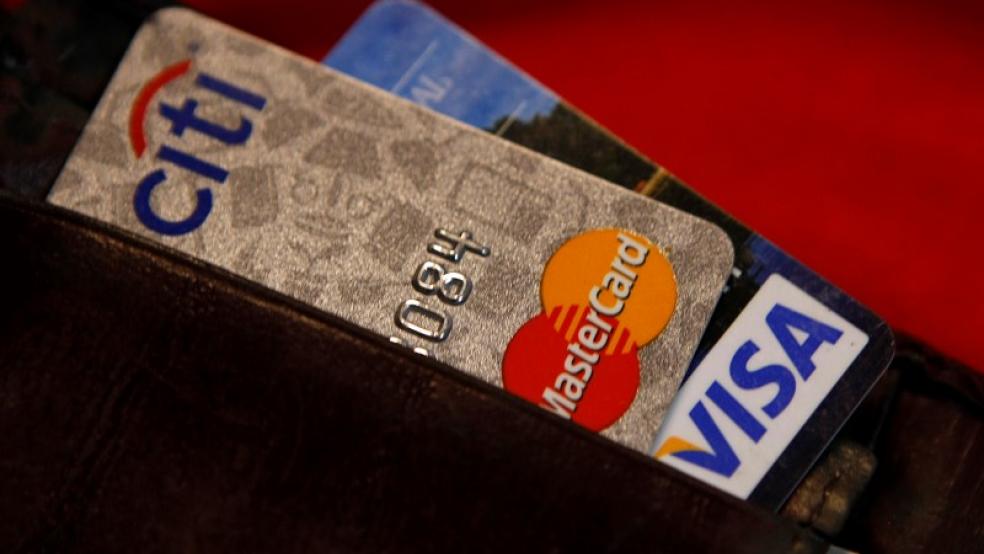The news about a $28,500 loan for the terrorists who killed 14 and wounded more than 20 in San Bernardino last week may or may not shed light on how the two killers financed their plot, but it does point to one alarming fact about terror attacks like this one: They are cheap.
Yesterday, NBC News confirmed that Syed Farook and Tashfeen Malik received the loan from peer-to-peer lender Prosper and that the money was deposited in an online bank account in the weeks that preceded the attack.
Related: ISIS Is Winning the Recruitment War as Foreign Fighters Flow into Syria
As personal loans go, $28,500 isn’t a remarkable amount. It could pay for some renovations to a home, it could be used to consolidate credit card debt or for any number of things. It is also, according to experts, more than enough to fund multiple acts of terror.
The possibility that Farook and Malik may have funded their attacks solely through personal assets and credit appears to be part of a trend that sees terror cells moving away from reliance on overseas networks in favor of self-funding.
Last year, in a detailed study of the funding sources for 40 European jihadi terror cells, the Norwegian Defense Research Establishment determined that the great majority were reliant on the members themselves to generate funds.
“Jihadis who have plotted attacks in Western Europe most commonly relied on funding from the cell members’ own salaries and savings,” the study found. “The vast majority of the cells studied (90 percent) were involved in income-generating activities, and half of them were entirely self-financed.
Related: The West can Defeat ISIS – But What Comes Next?
“Only one in four received economic support from international terrorist organizations such as al-Qaida. Over time, there has been a decline in the proportion of cells that receive support from organized terrorist groups and support networks, and a corresponding increase in cells that are self-financed through legal activities.”
The report also confirmed that most of the cells were engaged in operations that could be funded for the price of a reasonably nice used car.
“Finally, jihadi terrorist attacks in Western Europe have generally been cheap, with three quarters of the plots studied estimated to cost less than $10,000. “
Prosper, the lender that approved the loan to the two killers, pointed out in a statement to the media that it had followed all applicable requirements when processing the loan. “All loans originated through the Prosper platform are subject to all identity verification and screening procedures required by law, including US anti-terrorism and anti-money laundering laws. As part of our standard procedures, we also confirm that all loan funds are disbursed into a verified US bank account in the borrower's name. Like all Americans, Prosper is shocked and saddened by recent events in San Bernardino.”
Related: Trump’s Muslim Ban Made Him and Easy Target – but Don’t Count Him Out Yet
By all accounts, there wasn’t any obvious reason why Farook and Malik would have triggered any warnings at Prosper or any other financial institution, since they weren’t on federal watch lists.
The troubling thing here, if the loan was used to fund part of the attack, is how mundane the whole thing was. The fact is that anybody in the U.S. with a high enough limit on his or her visa card or a reasonably good credit score can gather the financial resources to fund a terrorist attack.
Funding sources for the typical terror cell in Europe are “remarkably ordinary,” the Norwegian Defense Research Establishment found. And that’s a problem for officials looking to protect the public, whose work to shut down terrorist organizations’ access to the international financial system may have worked too well.
“The decline in support from international terrorist organizations and support networks may partly be explained by the introduction of stricter financial controls and regulations that have made it more difficult for al-Qaida and its affiliates to raise money and transfer them to local cells,” the report found. “In this respect, existing counter terrorist financing (CTF) measures may be considered a success.
Related: Here’s Why the Republican Party Is Terrified of Trump
“However, the recent development towards increased self-financing based on legal income sources is worrying from the perspective of prevention. Many European terrorist cells now raise the necessary funds through methods that are difficult to identify as being related to terrorism. … [I]t is important to recognize that terrorists are flexible and adapt to the policies imposed. There is a constant need for reassessment of countermeasures, taking into account how today’s terrorists actually fund their activities.”
When terror can be funded by maxing out a couple of credit cards, though, it’s hard to see what countermeasures might be effective.





